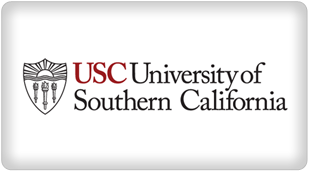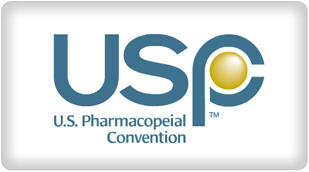Enabling World-Class Institutions to Maintain Their Competitive Edge
Most Universities in developed countries are equipped with amazing facilities to do in vitro and in vivo research, and have contributed greatly over the years towards advanced scientific research. However they face a unique problem with regard to controlling and maintaining research data, with constant influx and outgo of researchers and students. Knowledge is constantly being lost. CytoSolve can literally do the work of hundreds of students/researchers and consolidate knowledge so it is not lost. We can collaborate and streamline research work with Universities as we have done with the researchers at the ones below.
CYTOSOLVE CASE STUDY: USC – Academic Collaboration
 Zilkha Neurogenetic Institute from University of Southern California (USC) has focussed their research on pericytes to decipher the mysteries of disease mechanisms that impact brain function. Pericytes are perivascular cells that encase around the endothelial cells of capillaries and venules throughout the body. They serve as vital integrators, coordinators and effectors for multiple signals between endothelial cells and astrocytes that are critical for neuronal functions in health and disease. Abnormalities in pericyte function could be an important target for neurodegeneration and psychiatric disorders. USC collaborates with CytoSolve to understand cellular and molecular interaction of pericytes in regulating endothelial cell structure and blood flow. CytoSolve has transformed molecular signaling pathways of PDGF-BB, TGF-β, and Notch into computational model. Scalability of the CytoSolve® Collaboratory™, allows modular integration of molecular pathway models, to analyze the efficient target in blood brain barrier of brain diseases like alzheimer’s disease. Integration and validation of models could be set as an initiative for developing optimized combinations of therapeutic compounds.
Zilkha Neurogenetic Institute from University of Southern California (USC) has focussed their research on pericytes to decipher the mysteries of disease mechanisms that impact brain function. Pericytes are perivascular cells that encase around the endothelial cells of capillaries and venules throughout the body. They serve as vital integrators, coordinators and effectors for multiple signals between endothelial cells and astrocytes that are critical for neuronal functions in health and disease. Abnormalities in pericyte function could be an important target for neurodegeneration and psychiatric disorders. USC collaborates with CytoSolve to understand cellular and molecular interaction of pericytes in regulating endothelial cell structure and blood flow. CytoSolve has transformed molecular signaling pathways of PDGF-BB, TGF-β, and Notch into computational model. Scalability of the CytoSolve® Collaboratory™, allows modular integration of molecular pathway models, to analyze the efficient target in blood brain barrier of brain diseases like alzheimer’s disease. Integration and validation of models could be set as an initiative for developing optimized combinations of therapeutic compounds.
CYTOSOLVE CASE STUDY: Safety Testing for United States Pharmacopeia
 Use of dietary supplements by military personnel is well acknowledged and documented in a review conducted by the Institute of Medicine. About half of the US population uses dietary supplements. Concerns regarding the benefits and safety of dietary supplement use by military arise because (a) military personnel may have a different intent than the general population and (b) military personnel have unique challenges and needs. CytoSolve® computational systems biology platform provides for the dynamic integration of molecular pathway models, in silico, to understand synergistic effects of multi-ingredient dietary supplements on molecular pathways of biological processes. CytoSolve platform was used to evaluate the effect of combinations of arginine and caffeine, found in dietary supplements taken by military personnel, on nitric oxide production, which is directly related to cardiovascular health. The CytoSolve analysis revealed that arginine alone increased the nitric oxide concentration whereas caffeine alone reduced the nitric oxide concentration in healthy individuals. In combination, the results indicated that production rate in healthy individuals did not increase significantly by arginine supplementation. On the other hand, arginine supplementation attenuated NO production rate to nearly normal levels in hyperglycemic/hypertensive individuals.
Use of dietary supplements by military personnel is well acknowledged and documented in a review conducted by the Institute of Medicine. About half of the US population uses dietary supplements. Concerns regarding the benefits and safety of dietary supplement use by military arise because (a) military personnel may have a different intent than the general population and (b) military personnel have unique challenges and needs. CytoSolve® computational systems biology platform provides for the dynamic integration of molecular pathway models, in silico, to understand synergistic effects of multi-ingredient dietary supplements on molecular pathways of biological processes. CytoSolve platform was used to evaluate the effect of combinations of arginine and caffeine, found in dietary supplements taken by military personnel, on nitric oxide production, which is directly related to cardiovascular health. The CytoSolve analysis revealed that arginine alone increased the nitric oxide concentration whereas caffeine alone reduced the nitric oxide concentration in healthy individuals. In combination, the results indicated that production rate in healthy individuals did not increase significantly by arginine supplementation. On the other hand, arginine supplementation attenuated NO production rate to nearly normal levels in hyperglycemic/hypertensive individuals.
